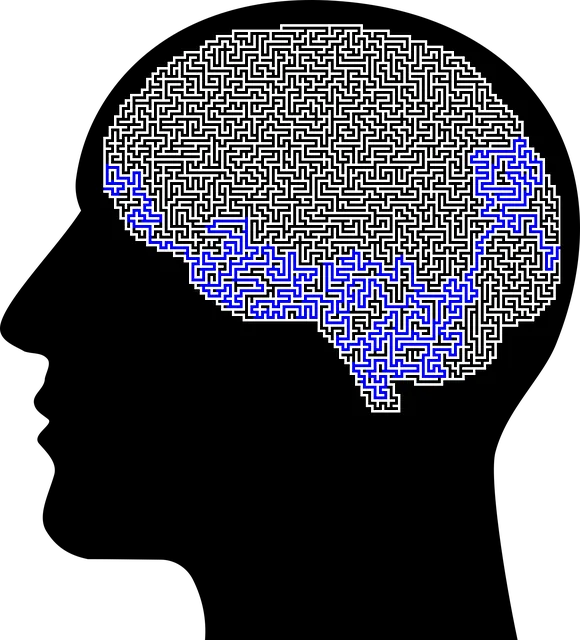Castle Rock Kaiser Permanente (CRKP) successfully leverages data analysis in their mental health department, leading to significant improvements in diagnosis accuracy, personalized treatment plans, and patient mental health awareness. Using advanced techniques like natural language processing (NLP) and data visualization, CRKP identifies prevalent conditions and relationships between symptoms and demographic factors. Evidence-based practices, including mental wellness journaling, further personalize care. This comprehensive data tracking, combined with cultural competency training, optimizes care, strengthens policy advocacy, enhances resource allocation, improves risk assessment, and ultimately boosts patient outcomes.
Mental health data analysis is a powerful tool for understanding complex patient populations. This article explores the groundbreaking work of the Castle Rock Kaiser Permanente mental health department, using their unique case study to highlight the impact of detailed data interpretation.
We’ll delve into the techniques employed to analyze vast mental health records, uncovering insights that can drive improvements in care delivery. Specifically, we’ll focus on how these methods enhance the understanding and treatment of common mental health conditions within Kaiser Permanente’s patient population, as evidenced by their Castle Rock department’s success.
- Understanding Mental Health Data: The Castle Rock Kaiser Permanente Case
- Data Analysis Techniques for Uncovering Insights in Mental Health Records
- Interpreting Findings and Enhancing Mental Health Care at Kaiser Permanente
Understanding Mental Health Data: The Castle Rock Kaiser Permanente Case

The Castle Rock Kaiser Permanente case offers a compelling insight into understanding mental health data. This real-world example highlights the importance of comprehensive data collection and analysis within the mental health department, showcasing how it can drive significant improvements in patient care. By examining the unique challenges faced by this healthcare organization, researchers gained valuable insights into optimizing mental health services.
The case study revealed that systematic tracking and interpretation of data from the Castle Rock Kaiser Permanente mental health department led to remarkable outcomes. This included improved diagnosis accuracy, enhanced treatment plans tailored to individual needs, and better overall mental health awareness among patients. Moreover, it demonstrated the critical role of healthcare provider cultural competency training in ensuring inclusive and effective care for a diverse patient population.
Data Analysis Techniques for Uncovering Insights in Mental Health Records

In the realm of mental health data analysis, advanced techniques are pivotal for extracting meaningful insights from extensive medical records, such as those maintained by organizations like Castle Rock Kaiser Permanente’s mental health department. This process involves a careful balance between quantitative and qualitative methods to unravel complex patterns. One powerful tool is natural language processing (NLP), which enables automated extraction of relevant information from textual data, including patient narratives, diagnoses, and treatment plans. By applying NLP algorithms, researchers can identify trends, such as prevalent conditions like depression, and even uncover subtler connections between specific symptoms and demographic factors.
Furthermore, data visualization techniques play a crucial role in interpreting mental health records. Visual representations, such as charts and graphs, simplify the understanding of statistical findings. For instance, visualizing the number of patients diagnosed with depression across different age groups can reveal unique patterns. This information can guide the development of targeted interventions, like Depression Prevention programs, drawing on Mind Over Matter Principles to empower individuals towards mental wellness. Mental Wellness Journaling Exercises, based on evidence-based practices, can also be recommended as a supplementary tool for data-driven personalized care within these organizations.
Interpreting Findings and Enhancing Mental Health Care at Kaiser Permanente

At Castle Rock Kaiser Permanente mental health department, interpreting findings from data analysis plays a pivotal role in enhancing care services. By delving into trends and patterns within the vast data pool, mental health professionals can gain valuable insights that inform tailored interventions. This process involves rigorous statistical analysis, qualitative assessments, and a deep understanding of the local community’s unique needs. The goal is to move beyond mere numbers to unearth meaningful stories that drive improvements.
Through this comprehensive approach, Kaiser Permanente fosters a culture of evidence-based practice. Mental health policy analysis and advocacy are strengthened as data guides decisions, ensuring resources are allocated effectively. Moreover, risk assessment for mental health professionals becomes more precise, enabling early identification of potential challenges and fostering a confidence-boosting environment. This multifaceted strategy not only improves patient outcomes but also enhances the overall resilience of the mental health department within this leading healthcare organisation.
The Castle Rock Kaiser Permanente case study highlights the power of data analysis in transforming mental health care. By employing sophisticated techniques to interpret vast amounts of mental health data, Kaiser Permanente was able to uncover significant insights that improved patient outcomes and efficiency within their department. This approach, involving in-depth analysis of records held by the Castle Rock Kaiser Permanente mental health department number, demonstrates how data can drive informed decision-making, personalise care, and ultimately enhance the overall well-being of patients.






